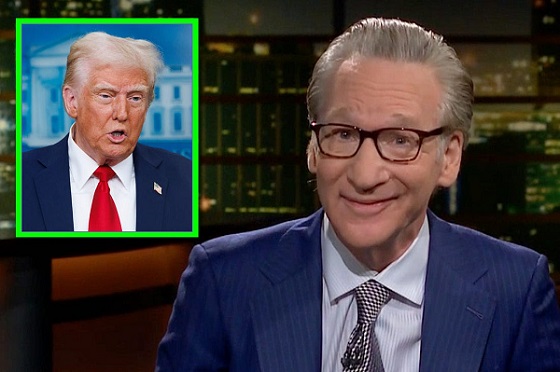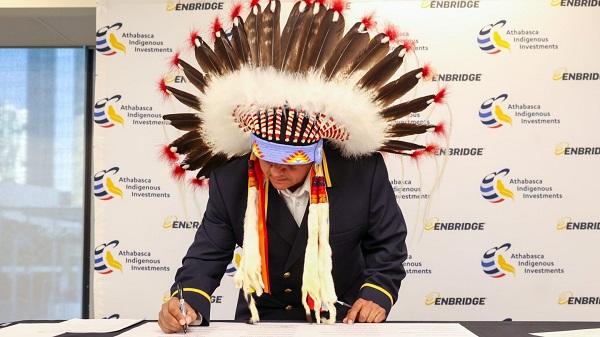Uncategorized
Bush mourned as a great statesman, a man of uncommon decency

WASHINGTON — Former President George H.W. Bush is returning to Washington as a revered political statesman, hailed by leaders across the political spectrum and around the world as a man not only of greatness but also of uncommon decency and kindness.
Bush, who died late Friday at his Houston home at age 94, is to be
Before that, his body will lie in state in the Capitol Rotunda for a public viewing from his arrival in Washington Monday until Wednesday morning.
President Donald Trump, who ordered federal offices closed for a national day of mourning on Wednesday, is to attend with first lady Melania Trump and other high-ranking officials.
Bush’s crowning achievement as president was assembling the international military coalition that liberated the tiny, oil-rich nation of Kuwait from invading
“We didn’t agree much on domestic policy, but when it came to the international side of things, he was a very wise and thoughtful man,” former Massachusetts Gov. Michael Dukakis, a Democrat who lost the presidency to Bush in 1988, told The Associated Press on Saturday. He credited Bush’s ability to negotiate with former Soviet Premier Mikhail Gorbachev as playing a key role.
“It was a time of great change, demanding great responsibility from everyone,” Gorbachev told the Interfrax news agency. “The result was the end of the Cold War and nuclear arms race.”
During that time and after, Gorbachev said, he always appreciated the kindness Bush and his family showed him.
In Washington, the former Republican president won praise from leaders of both parties.
Republican House Speaker Paul Ryan lauded him for leading the nation with “decency and integrity,” while Democratic House Leader Nancy Pelosi said it was a “privilege to work with him.”
Republican Sen. Bob Corker of Tennessee said Bush “befriended political foes, reminding Americans that there is always more that unites us than divides us.”
At the G-20 summit in Argentina, German Chancellor Angela Merkel, who was raised in then-divided East Germany, told reporters she likely would never have become her country’s leader had Bush not pressed for the nation’s reunification in 1990.
A humble hero of World War II, Bush was just 20 when he survived being shot down during a bombing run over Japan. He had enlisted in the U.S. Navy on his 18th birthday.
Shortly before leaving the service, he married his 19-year-old sweetheart, Barbara Pierce, a union that lasted until her death earlier this year.
After military service, Bush enrolled in Yale University, where he would become a scholar-athlete, captaining the baseball team to two College World Series before graduating Phi Beta Kappa after just 2
After moving to Texas to work in the oil business, Bush turned his attention to politics in the 1960s, being elected to his first of two terms in Congress in 1967. He would go on to serve as ambassador to the United Nations and China, head of the CIA and chairman of the Republican National Committee before being elected to two terms as Ronald Reagan’s
Soon after he reached the zenith of his political popularity following the liberation of Kuwait, the U.S. economy began to sour, however, and voters began to believe that Bush, never a great orator, was out of touch with ordinary people.
He lost his bid for re-election to then-Arkansas Gov. Bill Clinton, who would later become a close friend. The pair worked together to raise tens of millions of dollars for victims of a 2004 Indian Ocean tsunami and Hurricane Katrina, which swamped New Orleans and the Gulf Coast in 2005.
“Who would have thought that I would be working with Bill Clinton of all people?” he joked in 2005.
Clinton said he would be “forever grateful” for that friendship.
___
Rogers reported from Los Angeles. Associated Press writer Susan Haigh contributed to this story.
Darlene Superville And John Rogers, The Associated Press
Uncategorized
Poilievre on 2025 Election Interference – Carney sill hasn’t fired Liberal MP in Chinese election interference scandal

From Conservative Party Communications
“Yes. He must be disqualified. I find it incredible that Mark Carney would allow someone to run for his party that called for a Canadian citizen to be handed over to a foreign government on a bounty, a foreign government that would almost certainly execute that Canadian citizen.
“Think about that for a second. We have a Liberal MP saying that a Canadian citizen should be handed over to a foreign dictatorship to get a bounty so that that citizen could be murdered. And Mark Carney says he should stay on as a candidate. What does that say about whether Mark Carney would protect Canadians?
“Mark Carney is deeply conflicted. Just in November, he went to Beijing and secured a quarter-billion-dollar loan for his company from a state-owned Chinese bank. He’s deeply compromised, and he will never stand up for Canada against any foreign regime. It is another reason why Mr. Carney must show us all his assets, all the money he owes, all the money that his companies owe to foreign hostile regimes. And this story might not be entirely the story of the bounty, and a Liberal MP calling for a Canadian to be handed over for execution to a foreign government might not be something that the everyday Canadian can relate to because it’s so outrageous. But I ask you this, if Mark Carney would allow his Liberal MP to make a comment like this, when would he ever protect Canada or Canadians against foreign hostility?
“He has never put Canada first, and that’s why we cannot have a fourth Liberal term. After the Lost Liberal Decade, our country is a playground for foreign interference. Our economy is weaker than ever before. Our people more divided. We need a change to put Canada first with a new government that will stand up for the security and economy of our citizens and take back control of our destiny. Let’s bring it home.”
Uncategorized
Canada Needs A Real Plan To Compete Globally

From the Frontier Centre for Public Policy
Ottawa’s ideological policies have left Canada vulnerable. Strategic action is needed now
As Canada navigates an increasingly complex geopolitical landscape, the next federal government must move beyond reflexive anti—Americanism regardless of its political leanings. Instead, Canada should prioritize national interests while avoiding unnecessary conflict and subservience.
The notion that Canada can stand alone is as misguided as the idea that it is only an economic appendage of the United States. Both perspectives have influenced policy in Ottawa at different times, leading to mistakes.
Rather than engaging in futile name-calling or trade disputes, Canada must take strategic steps to reinforce its autonomy. This approach requires a pragmatic view rooted in Realpolitik—recognizing global realities, mitigating risks, governing for the whole country, and seizing opportunities while abandoning failed ideologies.
However, if Washington continues to pursue protectionist measures, Canada must find effective ways to counteract the weakened position Ottawa has placed the country in over the past decade.
One key strategy is diversifying trade relationships, notably by expanding economic ties with emerging markets such as India and Southeast Asia. This will require repairing Canada’s strained relationship with India and regaining political respect in China.
Unlike past Liberal trade missions, which often prioritized ideological talking points over substance, Canada must negotiate deals that protect domestic industries rather than turning summits into platforms for moral posturing.
A more effective approach would be strengthening partnerships with countries that value Canadian resources instead of vilifying them under misguided environmental policies. Expand LNG exports to Europe and Asia and leverage Canada’s critical minerals sector to establish reciprocal supply chains with non-Western economies, reducing economic reliance on the U.S.
Decades of complacency have left Canada vulnerable to American influence over its resource sector. Foreign-funded environmental groups have weakened domestic energy production, handing U.S. industries a strategic advantage. Ottawa must counter this by ensuring Canadian energy is developed at home rather than allowing suppressed domestic production to benefit foreign competitors.
Likewise, a robust industrial policy—prioritizing mining, manufacturing, and agricultural resilience—could reduce dependence on U.S. and Chinese imports. This does not mean adopting European-style subsidies but rather eliminating excessive regulations that make Canadian businesses uncompetitive, including costly domestic carbon tariffs.
Another key vulnerability is Canada’s growing military dependence on the U.S. through NORAD and NATO. While alliances are essential, decades of underfunding and neglect have turned the Canadian Armed Forces into little more than a symbolic force. Canada must learn self-reliance and commit to serious investment in defence.
Increasing defence spending—not to meet NATO targets but to build deterrence—is essential. Ottawa must reform its outdated procurement processes and develop a domestic defence manufacturing base, reducing reliance on foreign arms deals.
Canada’s vast Arctic is also at risk. Without continued investment in northern sovereignty, Ottawa may find itself locked out of its own backyard by more assertive global powers.
For too long, Canada has relied on an economic model that prioritizes federal redistribution over wealth creation and productivity. A competitive tax regime—one that attracts investment instead of punishing success—is essential.
A capital gains tax hike might satisfy activists in Toronto, but it does little to attract investments and encourage economic growth. Likewise, Ottawa must abandon ideological green policies that threaten agri-food production, whether by overregulating farmers or ranchers. At the same time, it must address inefficiencies in supply management once and for all. Canada must be able to feed a growing world without unnecessary bureaucratic obstacles.
Ottawa must also create an environment where businesses can innovate and grow without excessive regulatory burdens. This includes eliminating interprovincial trade barriers that stifle commerce.
Similarly, Canada’s tech sector, long hindered by predatory regulations, should be freed from excessive government interference. Instead of suffocating innovation with compliance mandates, Ottawa should focus on deregulation while implementing stronger security measures for foreign tech firms operating in Canada.
Perhaps Ottawa’s greatest mistake is its knee-jerk reactions to American policies, made without a coherent long-term strategy. Performative trade disputes with Washington and symbolic grandstanding in multilateral organizations do little to advance Canada’s interests.
Instead of reacting emotionally, Canada must take proactive steps to secure its economic, resource, and defence future. That is the role of a responsible government.
History’s best strategists understood that one should never fight an opponent’s war but instead dictate the terms of engagement. Canada’s future does not depend on reacting to Washington’s policies—these are calculated strategies, not whims. Instead, Canada’s success will be determined by its ability to act in the interests of citizens in all regions of the country, and seeing the world as it is rather than how ideological narratives wish it to be.
Marco Navarro-Génie is the vice president of research at the Frontier Centre for Public Policy. With Barry Cooper, he is co-author of Canada’s COVID: The Story of a Pandemic Moral Panic (2023).
-

 espionage2 days ago
espionage2 days agoEx-NYPD Cop Jailed in Beijing’s Transnational Repatriation Plot, Canada Remains Soft Target
-

 2025 Federal Election2 days ago
2025 Federal Election2 days agoCanada drops retaliatory tariffs on automakers, pauses other tariffs
-

 Daily Caller2 days ago
Daily Caller2 days agoDOJ Releases Dossier Of Deported Maryland Man’s Alleged MS-13 Gang Ties
-

 2025 Federal Election1 day ago
2025 Federal Election1 day agoAllegations of ethical misconduct by the Prime Minister and Government of Canada during the current federal election campaign
-

 John Stossel1 day ago
John Stossel1 day agoClimate Change Myths Part 1: Polar Bears, Arctic Ice, and Food Shortages
-

 2025 Federal Election2 days ago
2025 Federal Election2 days agoBREAKING from THE BUREAU: Pro-Beijing Group That Pushed Erin O’Toole’s Exit Warns Chinese Canadians to “Vote Carefully”
-

 Daily Caller2 days ago
Daily Caller2 days agoTrump Executive Orders ensure ‘Beautiful Clean’ Affordable Coal will continue to bolster US energy grid
-

 Opinion1 day ago
Opinion1 day agoLeft Turn: How Viet Nam War Resisters Changed Canada’s Political Compass








